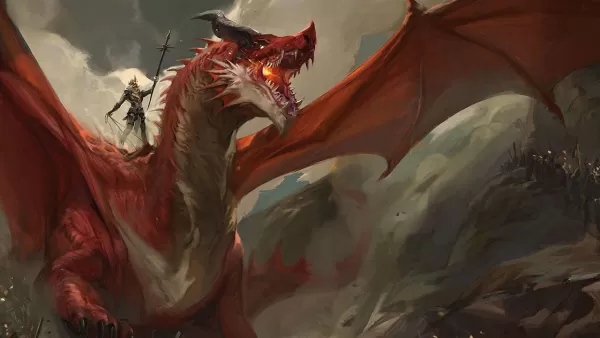by Gabriella Nov 11,2025
Dungeons & Dragons (D&D) is the original tabletop role-playing game (TTRPG) – a collaborative storytelling experience where players' decisions and dice rolls shape the unfolding adventure. Thanks to blockbusters like Dungeons & Dragons: Honor Among Thieves and the viral success of Baldur's Gate 3, this legendary franchise has welcomed countless newcomers. The current 5th Edition (D&D 5e), with its streamlined rules and accessible gameplay, makes this the perfect time to embark on your first adventure.
For those seeking simpler alternatives, numerous board games capture D&D's spirit while being easier to learn.
Rulebooks
Dice Sets
Character Sheets
Game Tokens
DM Resources
While playable with just two participants (a Dungeon Master and one player), ideal groups consist of 3-5 adventurers. The DM's role involves crafting narratives, managing rules, and breathing life into the game world – a challenging but immensely satisfying creative outlet.
For aspiring DMs, official adventure modules and guides like the Dungeon Master's Guide provide invaluable support.
While technically only one book is essential for players, these three volumes form D&D's foundation:
Player’s Handbook - The essential guide containing character creation, gameplay rules, and reference materials for all experience levels.
Dungeon Master’s Guide - A treasure trove of worldbuilding advice and campaign creation tools for aspiring DMs.
Monster Manual - Over 300 creatures to challenge players, from goblins to ancient dragons.
Starter Sets offer complete entry points with premade characters, adventures, and condensed rules suitable for digital or physical play.

The classic seven-dice set (d4, d6, d8, d10, d12, d20, and percentile die) determines your fate in-game. While sharing is possible, most enthusiasts eventually acquire multiple custom sets.
Digital tools like DnDBeyond streamline character creation and maintenance, though traditional paper sheets remain popular. Baldur's Gate 3 players can import their digital characters.
While theater-of-mind play works fine, miniature figures and battlemaps enhance spatial awareness during combat encounters. Virtual tabletops like Roll20 offer excellent digital alternatives.
Character Creation: Design unique heroes using the Player's Handbook. Worldbuilding: DMs craft settings through imagination or prewritten modules. Turns & Checks: Players describe actions while DMs call for ability checks when outcomes are uncertain.
Race & Class Selection: Defines capabilities and roleplaying hooks. Ability Scores: Determine physical/mental strengths through rolling or point-buy systems. Backstory: Creates narrative hooks for DMs to incorporate.
Initiative: Orders combat turns. HP & AC: Track survivability and defenses. Leveling: Grants new abilities through XP or milestone progression.
Share narrative focus, embrace roleplaying vulnerability, and maintain positive table dynamics.

Preparation: Develop flexible world elements. Adaptability: Embrace player creativity. Table Management: Establish clear expectations regarding gameplay style and content boundaries.
D&D's limitless potential thrives when players embrace collaborative storytelling. With basic preparation and enthusiasm, you're ready to craft unforgettable adventures.
Forsaken Characters Ranked: Tier List Update 2025
State of Play Reveals Exciting Updates: PlayStation February 2025 Showcase
How to Use Cheats in Balatro (Debug Menu Guide)
Infinity Nikki – All Working Redeem Codes January 2025
Roblox: Obtain Secret Codes for January 2025 (Updated)
Pokémon GO Raids in January 2025
Wuthering Waves: Redeem Codes for January 2025 Released!
LEGO Ninjago Sets Top the Charts (2025)

Samsung Galaxy Buds 3 58% Off in Labor Day Sale
Feb 11,2026

Break Worlds in Upcoming iOS Game 'Faily Brakes Roadtrip'
Feb 11,2026

HoYoverse Launches Honkai: Nexus Anima CBT Sign-Up
Feb 11,2026

Marvel Snap Launches New Fantastic Four Season
Feb 10,2026

Pokemon Legends: Z-A Hit With User Review Bombs
Feb 09,2026